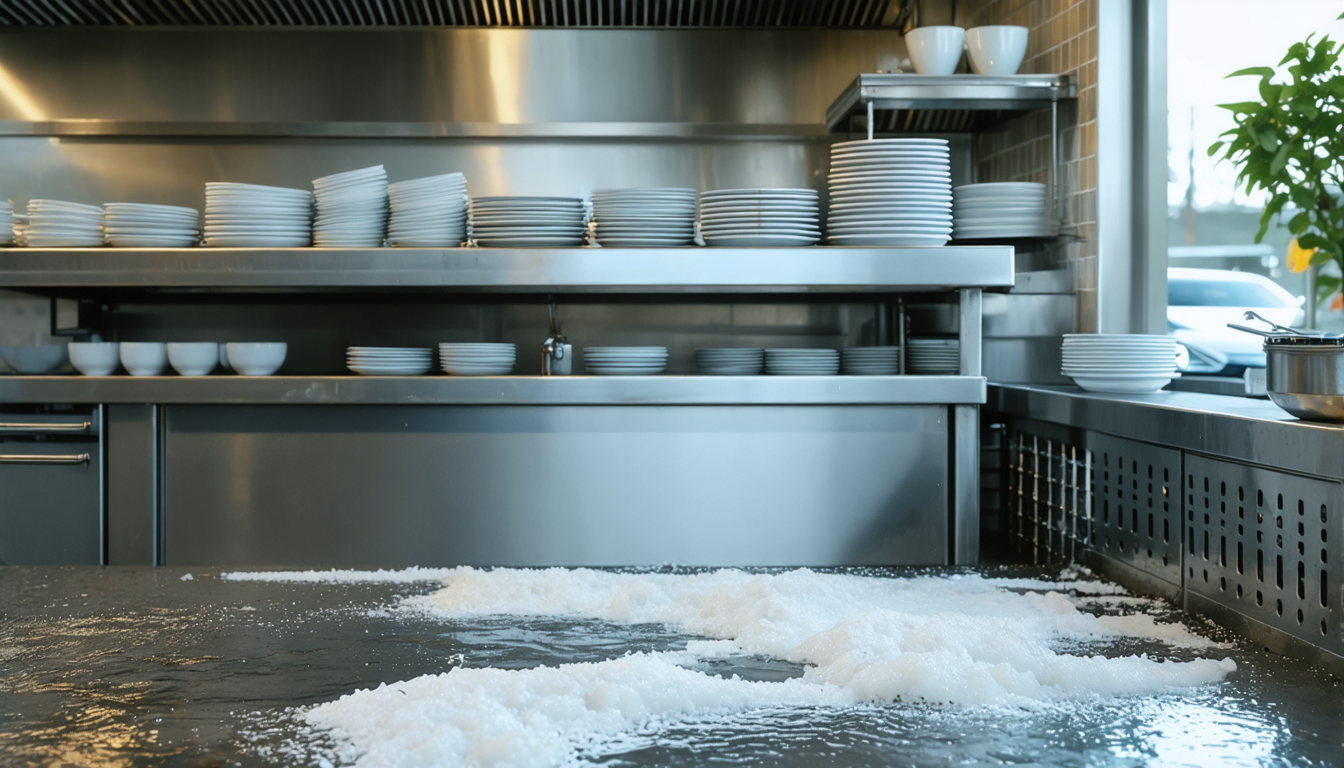- Understanding Environmental and Pollution Liability in the Restaurant Industry
- The Regulatory Landscape: Key Environmental Laws and Standards
- Common Environmental Risks and Pollution Hazards in Restaurants
- Navigating Legal Responsibilities and Liabilities
- Implementing Effective Waste Management and Sustainability Practices
- Best Practices for Pollution Prevention and Risk Mitigation
- Insurance and Financial Protection Against Environmental Incidents
- Real-World Case Studies: Lessons Learned from Environmental Failures
- Employee Training and Operational Compliance Strategies
- Future Trends: Evolving Regulations and the Sustainability Imperative
- Conclusion
1. Understanding Environmental and Pollution Liability in the Restaurant Industry
Environmental and pollution liability is a growing concern for the restaurant industry. Establishments across the globe face increasing scrutiny over environmental practices as governments and consumers demand greener operations.
Restaurant operators must understand their legal responsibilities and the potential risks of pollution for proper risk management. This article explores key environmental laws, hazards, risk mitigation strategies, and sustainability best practices to help restaurants navigate regulatory challenges.

2. The Regulatory Landscape: Key Environmental Laws and Standards
Restaurants operate under multiple layers of environmental regulation. National, state, and local agencies mandate compliance with strict standards on waste disposal, water discharge, air quality, and chemical handling. Regulations such as the Clean Water Act, Clean Air Act, and hazardous waste laws directly affect restaurant operations.
Regular audits and inspections ensure that establishments abide by these laws. Maintaining compliance not only minimizes fines and reputational damage but often improves operational efficiencies and long-term sustainability prospects.
3. Common Environmental Risks and Pollution Hazards in Restaurants
Restaurants encounter various environmental risks that stem from common activities like food preparation, cleaning, and waste disposal.
Contaminants from grease, oil, and food waste can accumulate in plumbing systems, leading to sanitation and health hazards. Improper storage or disposal of chemicals and cleaning agents may lead to accidental spills, posing risks to both employees and the environment.
Additionally, inefficient waste management increases the risk of air and water pollution. Awareness of these pollution hazards is the first step toward an effective prevention strategy.

4. Navigating Legal Responsibilities and Liabilities
Understanding the legal responsibilities is crucial for restaurant managers and owners. Environmental and pollution liability laws will hold establishments accountable for accidents and non-compliance.
This means restaurants must be vigilant about following waste disposal guidelines, keeping updated records of chemical inventories, and implementing emergency response plans in case of spills or other incidents.
Consulting legal experts ensures that businesses maintain compliance with evolving regulations. It is important to emphasize that negligence in these areas can result in severe penalties, including hefty fines and potential shutdowns.
5. Implementing Effective Waste Management and Sustainability Practices
Effective waste management is key to reducing environmental impact and ensuring compliance with legal standards. Restaurants should adopt integrated approaches that not only manage waste but also promote recycling and resource recovery.
Installing grease traps and scheduling regular maintenance protects plumbing systems and prevents backflow of contaminated materials. Additionally, implementing a composting program for organic waste is both environmentally beneficial and cost-effective.
Sustainability practices, such as using biodegradable cleaning products and energy-efficient appliances, contribute to a proactive approach. These measures can also help reduce a restaurant’s carbon footprint and improve its public image.

6. Best Practices for Pollution Prevention and Risk Mitigation
Restaurants must adopt proven strategies to reduce the risk of environmental incidents. One best practice is to conduct routine inspections and audits focusing on potential environmental hazards.
Regular cleaning procedures and prompt repair of faulty equipment can help prevent spillages and contamination. Using eco-friendly products wherever possible minimizes the release of harmful chemicals.
Moreover, integrating technology like waste tracking systems can help monitor disposal practices and identify areas for improvement. Employing a proactive rather than reactive approach can turn environmental liability challenges into opportunities for operational enhancements and cost reduction.
7. Insurance and Financial Protection Against Environmental Incidents
Adequate insurance coverage is an essential component of any restaurant’s risk management plan. Environmental and pollution liability insurance offers financial protection against incidents that may lead to cleanup costs, legal fees, and other financial burdens.
Many policies are tailored specifically to the risks faced by restaurants, covering aspects such as accidental spills, improper waste handling, and third-party property damage. Consulting with insurers to understand policy terms and ensuring that all potential risks are covered is vital for operational stability.
Insurance is not a substitute for compliance, but it is an important safety net that enhances a restaurant’s resilience in the event of environmental incidents.

8. Real-World Case Studies: Lessons Learned from Environmental Failures
Real-world examples provide valuable lessons in the importance of adhering to environmental standards. Several high-profile cases highlight the financial and reputational damage that can occur from environmental negligence.
For instance, a popular restaurant chain once faced significant fines and negative public perception after an incident involving improper waste disposal caused the contamination of a local waterway.
In another case, a family-owned restaurant incurred moderate penalties and community backlash due to repeated violations of air quality standards, resulting in poor profitability over several years. These cases underscore that investing in proactive environmental management can save restaurants from costly legal battles and long-term brand damage.
9. Employee Training and Operational Compliance Strategies
Employees are the first line of defense in maintaining environmental safety standards. Comprehensive training programs should educate staff on best practices for waste disposal, chemical handling, and emergency response procedures.
Clear, easy-to-follow protocols improve operational compliance and instill a sense of responsibility among employees. Routine drills and refresher courses help ensure that all staff members remain updated on the latest environmental regulations and internal policies.
When every team member understands their role in maintaining environmental safety, restaurants are better prepared to handle unexpected incidents and reduce overall risk.
10. Future Trends: Evolving Regulations and the Sustainability Imperative
The business landscape is continuously evolving, and environmental regulations are no exception. Future trends indicate that governments will enforce stricter environmental laws as public concern grows over climate change and resource depletion.
Expect to see increased emphasis on sustainability practices and waste reduction in government policies. Restaurants may be required to incorporate green building practices and energy-efficient technology in their operations.
Building a flexible, future-oriented approach today will help restaurants adapt to upcoming regulatory changes and retain a competitive edge. Staying informed about legislative developments and integrating sustainability into the core business strategy not only ensures compliance but also attracts increasingly environmentally conscious consumers.
Conclusion
As environmental and pollution liability becomes a critical issue in the restaurant industry, proactive management is essential. Understanding key environmental laws, identifying pollution risks, and navigating legal responsibilities helps restaurants mitigate liability and operate responsibly.
Effective waste management, best practices for accident prevention, and employee training form the backbone of a solid environmental strategy. Additionally, securing proper insurance coverage provides financial protection against unforeseen incidents. Learning from real-world failures and looking ahead to future regulatory trends reinforces the importance of sustainable practices.
Today, restaurants that integrate these practices can look forward to not only complying with the law but also enhancing their reputation and achieving long-term success in an increasingly sustainability-driven market.
